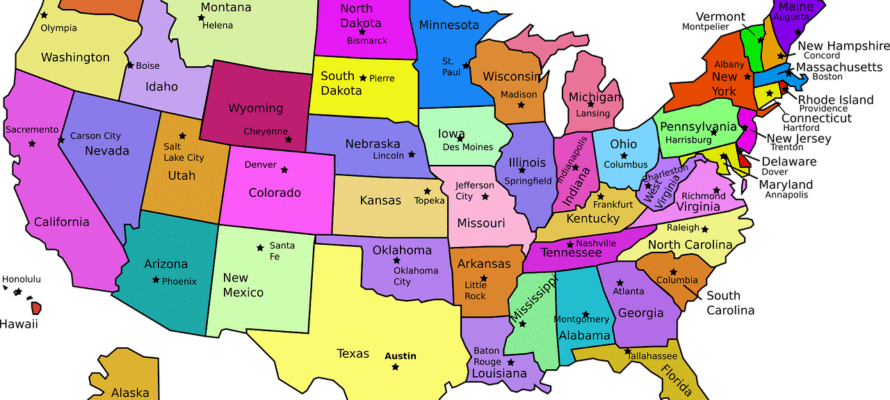Most people use the terms “revocable trust” and “living trust” interchangeably. The terms are usually synonymous, and most everyone I know thinks they are the same thing, but that isn’t always true. Since there are some important differences, I will address the differences in this post:

A Living Trust vs. Revocable Trust Compared Side by Side
Definition: A living trust is a trust that you create while you are alive. It is also called an inter vivos trust, meaning the trust was created while you are alive. Definition: A revocable trust is one that you create while you are alive, but it is a trust that you can change or revoke while you are alive. Because you need to be alive to create a revocable trust, a revocable trust is a form of a living trust. A living trust may be revocable or irrevocable, depending on what the trust is trying to accomplish. A revocable living trust is the most common form of a trust that I create. A revocable living trust allows you to avoid the probate process, since a revocable trust is an alternative to a will. A revocable living trust is a private document that does not need to go through the probate process that a will does. Instead, a revocable living trust allows your designated successor trustee to distribute assets to the named beneficiaries of your trust without needing to go through the courts. This aspect of a revocable living trust is the same as that of a revocable trust. So, this is a lot of why revocable living trusts, which are also revocable trusts, have the term used interchangeably. However, not all living trusts are revocable. Some are irrevocable. I have had clients tell me they want a living trust, when they mean an irrevocable asset protection trust. An irrevocable living trust allows you to put your asset into an asset protection trust while you are alive, usually trying to shield the assets from long term care costs or other potential creditors. Irrevocable living trusts are quite useful to those who need them, but since not everyone needs asset protections, using just the term “living trust” here does not quite give a full picture. Irrevocable living trusts are less common than revocable living trusts, but are still helpful and useful. A revocable trust is most useful for avoiding probate or for controlling assets after you pass away. The trust’s method of avoiding probate is shown on the other column, under the living trust headings. A revocable trust does not end when you pass away, but continues to exist. Since the trust continues to exist, the trust can control property after you pass away. The trust can dictate who gets assets and what the terms, conditions, and restrictions of distributions from the trust will be. Age based restrictions for minor children, or even older children not quite able to handle large sums of money are common, as are restrictions for use in education or other worthy pursuits in a trust.When you pass away, your revocable trust will become irrevocable. The person who creates the trust is usually the only one who can change or amend a trust, so when the trust creator passes away, the terms of the trust are set. The trust is no longer a revocable trust, but has been converted into an irrevocable trust. If you so desire, you can shield your assets from being picked up by various creditors of your children or other beneficiaries. While less common, you can provide asset protection to the named beneficiaries of the trust. Most revocable trusts that convert into irrevocable trusts do so simply because the trust creator has passed away, and help avoid a lengthy probate process for the survivors and beneficiaries of the revocable trust turned into an irrevocable trust after your death. A revocable trust does not end when you pass away, but continues to exist. Since the trust continues to exist, the trust can control property after you pass away. The trust can dictate who gets assets and what the terms, conditions, and restrictions of distributions from the trust will be. Age based restrictions for minor children, or even older children not quite able to handle large sums of money are common, as are restrictions for use in education or other worthy pursuits in a trust. When you set up a revocable trust, you are in charge of the assets, and you are the beneficiary while you are alive. This means that you can control the assets and you can do whatever you want with the assets in a trust while you are alive. Most people like to keep control of their own assets while they are alive, I have found. To get asset protection, you give up direct control of your assets. You need to have children, or siblings, or other individuals who are in charge of the assets. Without a separate trustee from you, the assets are usually not protected, so you generally need a separate trustee from you. Asset protection also means you are generally prohibited from being a direct beneficiary of the trust. If you can receive benefits directly from the trust, you are likely to be considered as having an interest in trust assets and the assets could be counted against you. As such, we usually set up your children, siblings, or others as beneficiaries of the trust, and count on those named beneficiaries to be benevolent and get the trust assets back to you if you need them. The beneficiaries are not legally required to give the assets back to you, and cannot be made legally responsible to do so, which adds a different level of complexity to this type of trust. Setting up living asset protection trusts requires a lot of belief in your trustee and your beneficiaries to do the right thing by you.
Living Trust
Revocable Trust
Common Features and Aspects:
Common Features and Aspects:
A revocable trust is most useful for avoiding probate or for controlling assets after you pass away. The trust’s method of avoiding probate is shown on the other column, under the living trust headings.
Revocable trusts do not provide asset protection under Colorado law. Other states may have asset protection for revocable trusts, but not Colorado.
When you pass away, your revocable trust will become irrevocable. The person who creates the trust is usually the only one who can change or amend a trust, so when the trust creator passes away, the terms of the trust are set. The trust is no longer a revocable trust, but has been converted into an irrevocable trust. If you so desire, you can shield your assets from being picked up by various creditors of your children or other beneficiaries. While less common, you can provide asset protection to the named beneficiaries of the trust. Most revocable trusts that convert into irrevocable trusts do so simply because the trust creator has passed away, and help avoid a lengthy probate process for the survivors and beneficiaries of the Irrevocable living trusts do come with their own benefits and drawbacks. I have discussed those aspects in different blog posts, and won’t repeat them all here, but you can go look for yourself on my other blog posts. A couple of the most important parts of a living irrevocable asset protection trust are here:
Since you are the trustee of your own trust, you are the beneficiary of your own trust while you are alive, and you created the trust, you can do anything you want with your assets while you are alive. After your death, you pick who will be in charge of the trust as a successor trustee, and you can dictate who will receive assets as a beneficiary of the trust. You can generally pick when and how the assets are to be distributed to your named beneficiaries after you have passed away, but your named beneficiaries don’t control the assets while you are alive. A revocable trust allows you to keep control of your assets and use them as you like while you are alive. You are not giving up control to your beneficiaries while you are alive – you are in control.
 A Living Trust and A Revocable Trust May Not Be The Same
A Living Trust and A Revocable Trust May Not Be The Same
Although the terms living trust and revocable trust are often used interchangeably, and often refer to the same type of this, this is not always the case. You will want to communicate clearly and effectively with your estate planning attorney to decide which type of trust will work best for you, and to make sure you are all on the same page as to what you are trying to accomplish. To discuss your situation with an experienced estate planning attorney and to decide which type of trust is for you, click the button below.

 720-730-7274
720-730-7274









